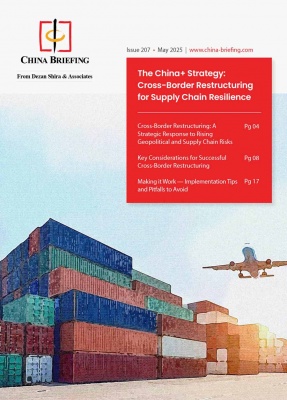Bartók’s Message to the New China Expats
Jan. 8 – With Chinese financial institutions recently having been on job hiring sprees in London and New York, mopping up some the casualties of the financial centers downturn, a new breed of expatriate is set to arrive in Shanghai and Beijing. Financial analysts, familiar with the global picture and international trading are in demand in China, as its banks seek to gain more of a toe hold into the global banking infrastructure.
It’s a scenario I can relate to very well. Many years ago in Hong Kong, I answered, briefly, a similar call – and found myself, while in-between jobs, working for a Chinese commodities broker for three months. Many other expatriates had been recruited at the time, ostensibly to sell products to the wealthy expatriate market, and the trading floor was packed full of out of work lawyers, analysts, stockbrokers and the like, many of whom for which this was their first foray into Asia. It was high pressure, very Chinese – and although interesting, not for me. I soon left, to take up a position with Asia Law & Practice.
What is interesting though is what became of those expatriates, in that environment, that I left behind. The money after all, was pretty poor, and pressure to perform was intense. I estimate at least a 50 percent turnover in the three months I was there, with just a handful of hardy expatriate souls hacking it for any length of time. But most failed. One chap had a traumatic nervous breakdown, while most of the others whiled away their spare time getting trashed in bars after work. An experience conquerable to London or New York it was not, and I recall the Chinese New Year, when with great aplomb, the head of the brokerage, a Mr. Li, (whom we had to stand up to greet on the rare occasions he came to visit the trading floor) dispensed with great fortitude lai see packets to all the expatriate staff, all of whom had to bow their heads and then clap appreciatively afterwards. After he left, we opened them. They each contained just HK$50 cents. It had all been just a show for one man’s ego, to have expatriate staff kowtow to him. To me, and several others, it was an insult.
China has changed a lot since then, but not all the egos have, and there is still a great deal of adversity when it comes to working within Chinese organizations. It will not be easy for the new financial analysts to cope with – torn between a dramatic change in cultural environment, to the pulling away from that by newly found expatriate friends dragging them to godforsaken bars to “integrate.” I suspect many of the new Shanghai intake will not survive the challenge.

The Mandarin embraces the dancing girl in Bartók’s ballet – comparable events take place nightly in Shanghai
In contemplating this, I am reminded of Béla Bartók’s one act ballet, “The Miraculous Mandarin.” Completed in 1924, it tells the tale of a wealthy Chinese businessman, who has arrived in a Western city (often depicted as Chicago) looking for fun, romance and a good time. The comparisons with modern day Shanghai, being filled with expatriates trying their luck could not be more apt.
In seeking a good night out however, the Mandarin is frequenting an area riddled with thieves and ne’er do wells. They use a pretty girl, dancing, to entice men into their room. The first taker is a drunken tramp, who they throw out, the second a handsome young man, who dances passionately with the girl but whom they discover has no money. The thieves jump him anyway, steal what he had, and then throw him out. The bars along Tongren Lu, anyone?
Finally, the wealthy Mandarin is enticed, and enters the room. She dances, to entice him more, and then, besotted, he embraces her – there is a struggle, and he is grabbed by the thieves and stripped of his belongings. For the contemporary Shanghai version, just look here.
I won’t spoil the rest of the plot by revealing what happens next, suffice it does not turn out well for the Mandarin, alone, in a strange land, with different cultures and people all to ready to exploit him. The new expatriates arriving in China would do well to listen to Bartók’s piece, and reflect upon the challenges of both trying to adapt to a new business culture as well as resist the temptations of what can often be a sordid and aggressive nightlife culture. Moderation, patience and an attempt to assimilate into Chinese, as opposed to purely expatriate culture, will be the key to success for those who are serious about making a career here.
Related
Carnegie Hall Insights
- Previous Article China in Asia: Jan. 8
- Next Article Beijing’s First SME Business Conference – Jan. 16

























